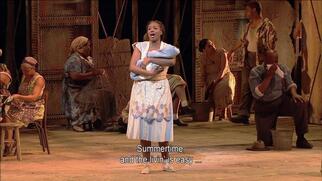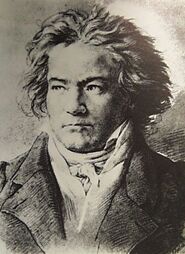First of all, let’s talk about what edelweiss is and how to say it. A-dle-vice, with a long A at the beginning. Edelweiss is a flower that grows in Austria and Germany. It’s a little white flower that grows on the hills and comes out in the early spring, peeking out from the snow. Hence the line in the song: Blossom of snow.
The musical was already in tryouts in Boston, when Rodgers and Hammerstein decided that they needed to have a song for Baron von Trapp to sing at the festival to say goodbye to Austria, the country that he loved so much. Theodore Bikel, who played the Baron had a good voice for folk music and played the guitar. So, the two set out to write a folk song.
Folk songs grow out of a culture. Most of the time we don’t even know who originally wrote most folk music. Setting out to write something that would sound like an organic folk song is actually quite difficult. But they succeeded so well, that many people think it was borrowed from Austrian folk music and set in the musical.
Edelweiss is a simple song, that doesn’t require anything in the way of fireworks. But it does require a lot of love and delicacy in singing it.
Edelweiss, edelweiss,
Every morning you greet me.
Small and white, clean and bright,
You look happy to meet me.
Blossom of snow may you bloom and grow,
Bloom and grow forever.
Edelweiss, edelweiss,
Bless my homeland forever.
By the way, it is now illegal to pick edelweiss if you come upon it growing in the wild. It is now an endangered flower. Tourists were picking all of them. That’s where all the flowers have gone, tourists have picked them everyone. When will they ever learn, oh, when will they ever learn? (Sorry – went off into a different song there for a moment. I’m back now.)
When I was a teenager, I used to go to the local nursing home, (Elkins only had one) and sing for the residents there. I remember one little old man, Otto. Otto must have been in his 90s when I knew him, and was about 5 feet tall, if that. He loved it when I sang Edelweiss. It reminded him of his home in Austria. It always made him cry, but he always asked me to sing it for him. I think of Otto every time I sing it.
Music has great power. It can help us to rise up and fight for justice and equality. It can remind us of how we fell in love. And it can take us back to our youth and bring tears of nostalgia to our eyes. Music is a reflection of the society in which we live. Let’s make it a good one.
I’ll be playing Edelweiss and some other folk-ish songs this week on my Minnich Music FaceBook page this week, so be sure to check those out. These are pivotal times we are living in. Be safe.
Until next time!




 RSS Feed
RSS Feed